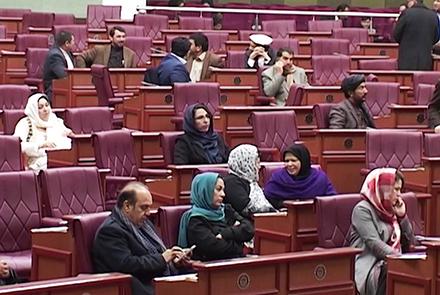The International Relations Commission of the Wolesi Jirga (Lower House of Parliament) on Tuesday said based on an investigation, findings reveal that the Foreign Affairs Ministry has spent at least 73 percent of its development budget.
As such, the commission called on the Supreme Court to decide on the fate of the Foreign Affairs Minister, Salahuddin Rabbani, based on the new findings.
“This issue has become a judicial issue. Now the foreign minister [Salahuddin Rabbani] can send his claim to judicial organizations and it should be reassessed. His right would be violated if he has actually spent 73 percent of his development budget,” said Abdul Qadir Zazai Watandost, a member of Wolesi Jirga’s International Relations Commission.
Meanwhile, the Wolesi Jirga’s Administrative Board said the continuation of work by the dismissed ministers is illegal and that the Supreme Court should approve the MPs’ decision.
“According to the Wolesi Jirga, the seven ministers no longer have the authority (to work) as ministers. No doubt, after reviewing the case, the Supreme Court will not have any explanation in this respect,” said Erfanullah Erfan, a member of the board.
The Presidential Palace has reportedly sent Article 92 of the Constitution to the Supreme Court for interpretations in this regard.
The Article says that the House of Representatives, at the request of 20 percent of all its members, can request reports from each minister. If the explanations given are not satisfactory, the House shall consider the issue of a no confidence vote. The no confidence vote against a minister shall be explicit, direct, as well as based on convincing reasons. The vote must be approved by the majority of all members of the House.
However, the Supreme Court has not spoken to the media about this.
“Any kind of move to avoid accessing information will affect governance. It will impact governance negatively if the judicial and legislator pillars avoid giving information to the people,” said Ainuddin Bahaduri.
The seven cabinet ministers were given a vote of no confidence late last year after they allegedly failed to spend sufficient portions of their development budgets.

